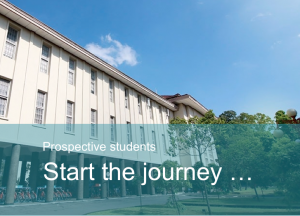Sasaran Kurikulum
Sasaran kurikulum Program Studi S3 Ilmu komputer terkait dengan tujuan pendidikan sebagaimana tercantum pada Tabel 1.1, Kemudian pada Tabel 1.2. diberikan indikator target capaian program.
Tabel 1.1. Tujuan, Sasaran dan program doktor Ilmu Komputer
| No | Tujuan | Sasaran | Indikator |
| 1 | Menghasilkan lulusan yang mampu dan handal menyesuaikan diri dalam perkembangan ilmu komputer, serta berkemampuan akademik yang tinggi. | Disertasi dengan topik yang lebih bervariasi; | Kesetaraan kualitas disertasi
Variasi topik disertasi per angkatan |
| Lulusan dengan IPK yang tinggi, serta waktu studi yang singkat; | Rata-rata IPK
Rata-rata waktu studi |
||
| 2 | Menghasilkan lulusan yang mampu melaksanakan dan mengembangkan penelitian yang menghasilkan teori, konsep, maupun metode baru dalam bidang ilmu komputer. | Banyaknya penelitian | Jumlah hibah penelitian mahasiswa per tahun |
| Ketajaman dan keunggulan teori, konsep, maupun metode baru yang dihasilkan | Jumlah teori baru | ||
| Meningkatknya jumlah publikasi ilmiah bertaraf internasional | Jumlah publikasi internasional mahasiswa per tahun | ||
| 3 | Menghasilkan lulusan yang dapat bertugas sebagai tenaga pengajar di Prodi S2 dan S3 terkait. | Rata-rata IPK |
Tabel 1.2. Indikator dan target capaian program doktor Ilmu Komputer
|
No. |
Indikator |
Baseline |
Midline |
Target |
|
(5 tahun) |
(10 tahun) |
|||
|
1. |
Kesataraan kualitas disertasi |
Nasional |
Asean |
Internasional |
|
2. |
Variasi topik disertasi per angkatan |
2 topik |
8 topik |
15 topik |
|
3. |
Rata-rata IPK |
3,50 |
3,60 |
3,70 |
|
4. |
Rata2 waktu studi |
4 tahun |
3,8 tahun |
3,6 tahun |
|
5. |
Sebaran asal mhs |
Nasional |
Asean |
Internasional |
|
6. |
Jumlah hibah penelitian mahasiswa per tahun |
5 |
10 |
15 |
|
7. |
Jumlah publikasi internasional mahasiswa per tahun |
5 |
10 |
15 |
|
8. |
Jumlah teori baru |
3 |
5 |
8 |
Dasar Penyusunan dan Arah Perubahan Kurikulum
Pengembangan kurikulum program doktor ilmu komputer dilakukan dengan memperhatikan faktor internal jurusan, minat mahasiswa terhadap topik penelitian serta perkembangan ilmu pengetahuan dan teknologi. Dukungan internal yang menjadi dasar pertimbangan adalah sumber daya manusia dan adanya lima laboratorium keilmuan yang telah dibentuk di Jurusan Ilmu Komputer dan Elektronika (JIKE) yaitu: Laboratorium Sistem Cerdas (SC), Laboratorium Sistem Komputer dan Jaringan (SKJ), Laboratorium Komputasi (Komp.), Laboratorium Elektronika dan Instrumentasi (Elins) dan Laboratorium Rekayasa Perangkat Lunak (RPL). Dengan memperhatikan keberadaan laboratorium tersebut maka program studi memberikan lima minat penelitian yang masing-masing didukung oleh lima matakuliah dari lab tersebut.
Aturan Peralihan Kurikulum
Aturan peralihan kurikulum program doktor Ilmu Komputer UGM adalah sebagai berikut:
-
Tidak ada perubahan matakuliah bagi mahasiswa yang sedang menyelesaikan perkuliahan;
-
Mahasiswa yang telah melebihi tenggat waktu untuk ujian komprehensif harus menempuh ujian komprehensif selambat-lambatnya tanggal 31 Desember 2017.
-
Mahasiswa yang telah menempuh ujian komprehensif dan telah melebihi 12 semester diwajibkan menempuh ujian disertasi selambat-lambatnya tanggal 31 Desember 2017.
Kesetaraan Mata Kuliah
Secara umum, perbedaan antara kurikulum lama (2013) dengan kurikulum 2017 adalah sebagai berikut :
-
Mahasiswa program doktor Ilmu Komputer harus menyelesaikan beban sebesar minimal 46 sks, yang meliputi disertasi, matakuliah wajib dan matakuliah pilihan prodi. Beban matakuliah yang harus diselesaikan seorang mahasiswa ditentukan oleh tim penerimaan mahasiswa baru (sebanyak 12 hingga 15 SKS, yang terdiri dari 6 SKS mata kuliah wajib dan 6 hingga 9 SKS mata kuliah pilihan prodi).
-
Pola kurikulum yang diterapkan pada kurikulum lama adalah 32 sks disertasi, 5 sks matakuliah wajib, dan minimum 3 sks matakuliah pilihan dari 26 matakuliah yang disedikan. Pada kurikulum 2017, beban mahasiswa terdiri dari 34 sks disertasi, 6 sks matakuliah wajib dan minimum 6 sks matakuliah pilihan prodi yang diambil dari 26 matakuliah yang disediakan.

